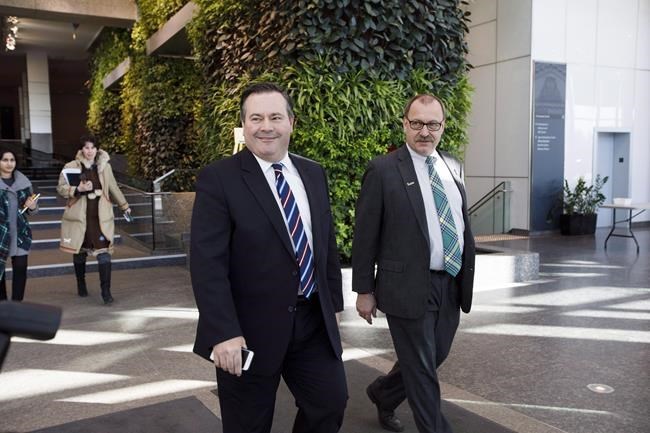EDMONTON — The Alberta government has introduced legislation that would bring in tolls on roads and bridges, but just for new projects.
Transportation Minister Ric McIver says the bill explicitly prohibits user fees on existing roads and bridges.
But he adds Alberta is facing a severe financial crunch and needs to find creative ways to finance critical infrastructure.
“User-financed construction will strengthen economic growth and competitiveness at a time when Albertans need it most,” McIver told a news conference Tuesday prior to introducing the bill in the legislature.
“This means faster commutes and less congestion while unleashing economic potential through speeding up commerce.”
McIver noted tolls are accepted ways to raise money in other jurisdictions, such as the Coquihalla Highway in British Columbia and Highway 407 in Toronto.
He said that under the bill the toll plan could only be used for new projects or expansions to existing ones. A toll could only go ahead if there remained a no-toll option for drivers not wanting to pay.
Revenue collected from the tolls would have to be used for the cost of the new road or bridge and the toll would disappear once the capital cost of the project was paid off.
The government could suspend the fee in case of emergencies, such as forest fires and other natural disasters.
There would also have to be local consultation before a project proceeded.
McIver said if the bill passes, the government will start with a Highway 697 bridge over the Peace River near the hamlet of La Crete, 500 kilometres northwest of Edmonton, to replace an existing ferry.
“Alberta’s government had planned to replace the ferry with another ferry; however, local residents strongly advocated the construction of a bridge to replace the ferry as they expressed (concerns) the ferry is inconsistent and unreliable,” said McIver.
“The traffic counts simply do not support building a bridge over the Peace River with the traffic count on Highway 697.”
He said those who didn't want to take the new bridge would still have the option of driving the long way around, which is an hour-and-a-half detour.
Premier Jason Kenney’s United Conservative government is looking for ways to save money and increase revenue. It projected a $6.8-billion deficit this year, but that is expected to balloon to more than $24 billion due to economic havoc from COVID-19.
The question of toll roads came up in early 2019, prior to the election that saw the UCP defeat Rachel Notley’s NDP and form a majority government.
Kenney at that time publicly mused about the possibility of tolls to pay for new roads and bridges for industrial users. Notley warned that Kenney was opening the door to user-pay for new and existing roads and bridges for everyday commuters, an accusation Kenney's UCP rejected.
Opposition NDP transportation critic Rod Loyola said Tuesday the bill is the start of a new broad road-funding model.
"Tompkins (ferry) Crossing may be the first toll road we see in Alberta, but it will not be the last," said Loyola.
"I fully expect we will see a proliferation of tolled roads, lanes and bridges over the next 2 1/2 years (of the current government mandate)."
Loyola said the bill is akin to blackmail for municipalities trying to get road projects off the drawing board and into reality.
"This government's message to Alberta communities is that a project can vault to the front of the line if tolls are imposed," said Loyola.
"I think that will motivate municipalities to take this route and we will see many, many more of these projects."
This report by The Canadian Press was first published Nov. 3, 2020.
Dean Bennett, The Canadian Press



